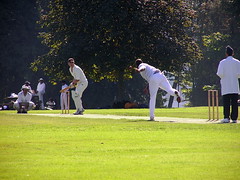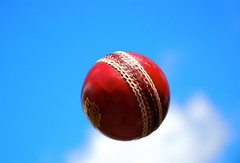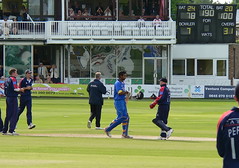How is match fitness different from gym fitness?
Time Savers: How to make the most of your nets
According to the ECBCA, the ideal number of people in a net at any one time is 6. I don't know about your club but on a busy practice day where I play we have way more than that jostling for a bowl and a bat.
The simple answer is to incorporate some fitness work into you practices too.
Of course, we want it to be fun as well as beneficial to our game, so how would you structure a session to meet these needs?
The first thing to do is ask yourself the following questions:
Are you level 4? I want to talk to you
Thanks to everyone who filled in this poll recently
In the poll I asked what level of cricket preparation you were at. Several people put the ultimate: Level 4.
You are a shining example to everyone who reads harrowdrive.
If you are one of those people please get in touch. I would love to speak to you to find out how you keep such high standards up.
The 4 levels of cricket preparation: Part 2
In part one yesterday we found out about the first two levels of cricket preparation. Today we move onto the higher levels.

 photo credit: thelastminute
photo credit: thelastminuteLevel 3
The Level 3 player takes the game more seriously. He has ambitions to get on, moving up from whatever standard he is currently at. He is determined to improve and spends time making sure he is at his best. His team and individual performances are more important than the post match pint (but he still has one or two).
The 4 levels of cricket preparation: How do you rate?
This is part one of a two part article. Click here for part 2.

 photo credit: .Bala
photo credit: .BalaIt will come as no shock to you that people prepare themselves differently for club cricket. We all have different priorities and motivations behind playing.
From experience I would say there are 4 levels that every player can fit into no matter what their skill level.
Case Study Updates: Matt and Trevor

 photo credit: Scott (SA-Photo)
photo credit: Scott (SA-Photo)Matt has completed a very useful exercise to try and improve his team's performance in 2008. I asked him to write a fake newspaper report summarising the season with the most incredible success he can realistically come up with. Professionals call this 'outcome visioning' which is just a posh way of writing down what you want to achieve without holding yourself back.
Case Study Profile: Mike
 Mike is a bowler in his 40s playing in Wiltshire. In days gone by he played at county 2nd team standard for the Army and is still taking wickets for his club. He plans to continue to do so in the coming season.
Mike is a bowler in his 40s playing in Wiltshire. In days gone by he played at county 2nd team standard for the Army and is still taking wickets for his club. He plans to continue to do so in the coming season.
Mental Skills
As an Army man, Mike is efficient, focussed strongly on completing tasks with minimum fuss. He seems to know his strengths and weaknesses well, thriving on the competitive pressure of playing cricket. From his initial questions I suspect Mike gets everything he wants from playing cricket already.
Can bowling with a heavy ball make you a faster bowler?

 photo credit: Tc7
photo credit: Tc7Bowling faster is the holy grail for many seamers. One method that has been borrowed from field athletics is using a heavier ball to bowl with.
Does it work?
The theory behind heavy ball bowling is simple: Using a heavier ball should overload the muscles you use to bowl with. When returning to a normal ball you will be stronger and therefore able to bowl with more pace.
Running with weights: Good for cricket?
"If i wanted to increase my speed and strength for bowling, would it be odd if i ran on a treadmill with 5KG weights in both of my hands at about 15kph?"
This question was emailed to me recently by a reader.
While the only odd question is one that is not asked, I have to say that training like this would not be the most effective method. Mainly because it wouldn't work, but also because there are many better ways to get the same result.



